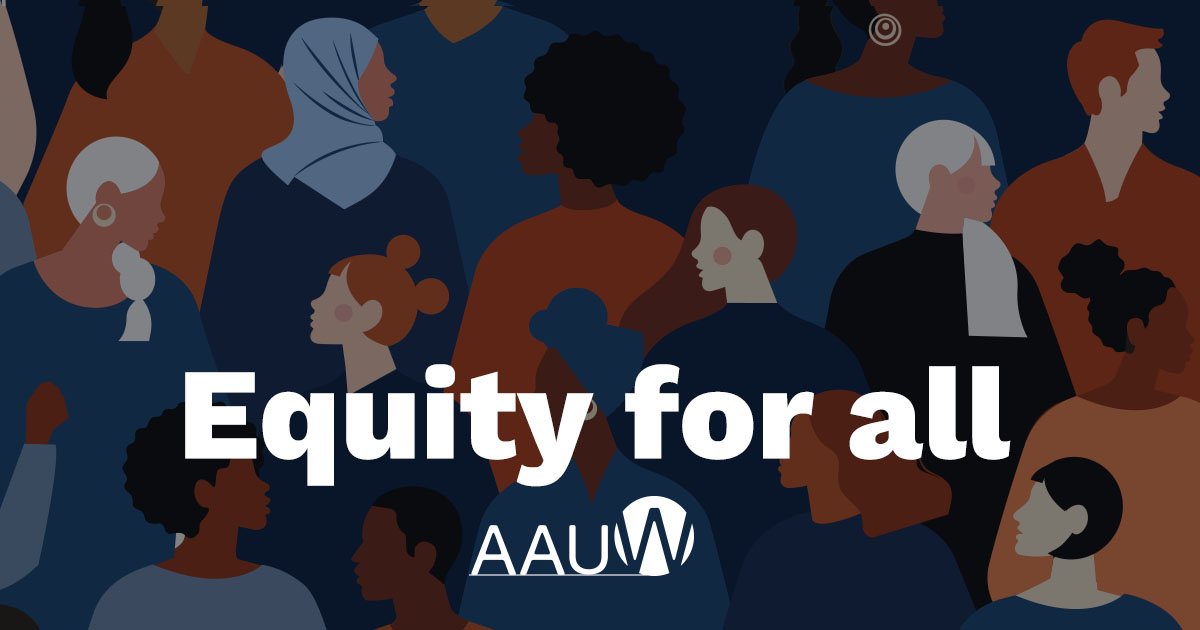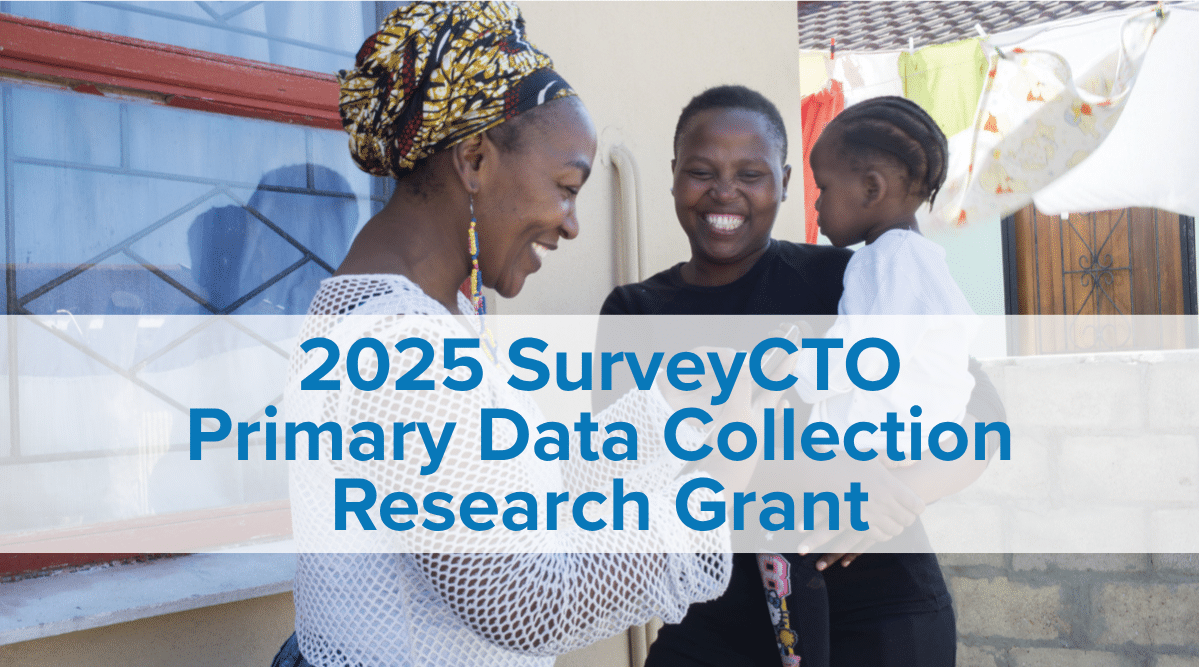Feed
-
Applications open for Postdoctoral Visiting FellowshipsDeadline: Oct 01, 2025 Donor: Kellogg Institute for International Studies Grant Type: Fellowship Grant Size: Not Available Countries/Regions: All Countries Area: Democracy & Good Governance, Individuals, PhD Holder, Research The Kellogg Institute for International Studies is seeking applications for its Kellogg Institute Postdoctoral Visiting Fellowships to award newly minted PhDs who conduct research on global democracy. For more information, visit https://kellogg.nd.edu/opportunities/visiting-researchers/about-our-postdoctoral-visiting-fellowships#tab-3426 Premium Link: https://grants.fundsforngospremium.com/opportunity/op/applications-open-for-postdoctoral-visiting-fellowshipsBy: Baboki Gaolaolwe-MajorThursday, Aug 7, 2025OTHER
No Preview Available -
Mpumalanga Tourism Youth Fund 2025 (South Africa)Deadline: Sep 30, 2025 Donor: National Youth Development Agency Grant Type: Grant Grant Size: Not Available Countries/Regions: South Africa Area: Arts & Culture, Organizing Events, Businesses, Companies and Enterprises, Hotels, Restaurants and Hospitality, Sports & Recreation, Tourism & Travel, Transportation, Youth & Adolescents Applications are now open for the Mpumalanga Tourism Youth Fund 2025, supporting young entrepreneurs running businesses in the tourism sector. For more information, visit https://www.facebook.com/permalink.php?story_fbid=pfbid02rbSK5Kj1tCGrDhPtbKNFUyvrPpb25tH81Vhc3LK8AkQnCFp1E83SQ4KNFHb5eZP5l&id=100064507821942 Premium Link: https://grants.fundsforngospremium.com/opportunity/op/mpumalanga-tourism-youth-fund-2025-south-africaBy: Baboki Gaolaolwe-MajorThursday, Aug 7, 2025OTHER
No Preview Available -
Nominations open for ARVO Foundation Research Catalyst AwardsDeadline: Oct 01, 2025 Donor: The Association for Research in Vision and Ophthalmology Grant Type: Awards, Prizes and Challenges Grant Size: $10,000 to $100,000 Countries/Regions: All Countries Area: Career Development, , Research Entries are now open for the Association for Research in Vision and Ophthalmology Foundation Research Catalyst Awards for investigators beginning their careers or returning to the workforce after an extended leave. For more information, visit https://www.arvo.org/awards-grants-and-fellowships/research-awards/research-catalyst-awards/ Premium Link: https://grants.fundsforngospremium.com/opportunity/op/nominations-open-for-arvo-foundation-research-catalyst-awardsBy: Baboki Gaolaolwe-MajorThursday, Aug 7, 2025EDUCATION+1
No Preview Available -
AAUW’s International Postdoctoral Research FellowshipsDeadline: Sep 30, 2025 Donor: AAUW Action Fund Grant Type: Fellowship Grant Size: $10,000 to $100,000 Countries/Regions: Afghanistan, Aland Islands, Albania, Algeria, American Samoa, Andorra, Angola, Anguilla, Antarctica, Antigua and Barbuda, Argentina, Armenia, Aruba, Australia, Austria, Azerbaijan, Bahamas, Bahrain, Bangladesh, Barbados, Belarus, Belgium, Belize, Benin, Bermuda, Bhutan, Bolivia, Bosnia And Herzegovina, Botswana, Bouvet Island, Brazil, British Indian Ocean Territory, Brunei, Bulgaria, Burkina Faso, Burundi, Cambodia, Cameroon, Canada, Cape Verde, Cayman Islands, Central African Republic, Chad, Chile, China, Christmas Island, Cocos (Keeling) Islands, Colombia, Comoros, Congo (Brazzaville), Congo DR, Cook Islands, Costa Rica, Cote DIvoire (Ivory Coast), Croatia, Cuba, Cyprus, Czech Republic, Denmark, Djibouti, Dominica, Dominican Republic, Ecuador, Egypt, El Salvador, Equatorial Guinea, Eritrea, Estonia, Ethiopia, Falkland Islands (Malvinas), Faroe Islands, Fiji, Finland, France, French Guiana, French Polynesia, French Southern Territories, Gabon, Gambia, Georgia, Germany, Ghana, Gibraltar, Greece, Greenland, Grenada, Guadeloupe, Guam, Guatemala, Guernsey, Guinea, Guinea-Bissau, Guyana, Haiti, Heard Island And Mcdonald Islands, Holy See (Vatican City State), Honduras, Hong Kong SAR, Hungary, Iceland, India, Indonesia, Iran, Iraq, Ireland, Isle Of Man, Israel, Italy, Jamaica, Japan, Jersey, Jordan, Kazakhstan, Kenya, Kiribati, South Korea, North Korea, Kuwait, Kyrgyzstan, Laos, Latvia, Lebanon, Lesotho, Liberia, Libya, Liechtenstein, Lithuania, Luxembourg, Macau, Macedonia, Madagascar, Malawi, Malaysia, Maldives, Mali, Malta, Marshall Islands, Martinique, Mauritania, Mauritius, Mayotte, Mexico, Micronesia Federated States Of, Moldova Republic Of, Monaco, Mongolia, Montserrat, Morocco, Mozambique, Burma(Myanmar), Namibia, Nauru, Nepal, Netherlands, Netherlands Antilles, New Caledonia, New Zealand, Nicaragua, Niger, Nigeria, Niue, Norfolk Island, Northern Mariana Islands, Norway, Oman, Pakistan, Palau, Palestinian Territories, Panama, Papua New Guinea, Paraguay, Peru, Philippines, Pitcairn, Poland, Portugal, Puerto Rico, Qatar, Reunion, Romania, Russia, Rwanda, Saint Helena, Saint Kitts And Nevis, Saint Lucia, Saint Pierre And Miquelon, Saint Vincent And The Grenadines, Samoa, San Marino, Sao Tome And Principe, Saudi Arabia, Senegal, Seychelles, Sierra Leone, Singapore, Slovak Republic, Slovenia, Solomon Islands, Somalia, South Africa, South Georgia And The South Sandwich Islands, Spain, Sri Lanka, Sudan, Suriname, Svalbard And Jan Mayen, Swaziland, Sweden, Switzerland, Syria, Taiwan, Tajikistan, Tanzania, Thailand, East Timor (Timor-Leste), Togo, Tokelau, Tonga, Trinidad And Tobago, Tunisia, Turkey, Turkmenistan, Turks And Caicos Islands, Tuvalu, Uganda, Ukraine, United Arab Emirates, United Kingdom, United States Minor Outlying Islands, Uruguay, Uzbekistan, Vanuatu, Venezuela, Viet Nam, British Virgin Islands, United States Virgin Islands, Wallis And Futuna, Western Sahara, Yemen, Zambia, Zimbabwe, Montenegro, Saint Barthélemy, Serbia, Kosovo, South Sudan , Curaçao, Bonaire Sint Eustatius and Saba, Saint Martin (French Part), Sint Maarten (Dutch Part) Area: Education, PhD Holder, Women and Girls, Leadership, Research, Women & Gender The AAUW’s International Postdoctoral Research Fellowships promote education and equity for women by investing in international applicants who will be pursuing postdoctoral research in the U.S., with the intention of applying their expertise, professional skills, and leadership in the context of their home countries. For more information, visit https://www.aauw.org/resources/programs/international-postdoctoral-research-fellowships/ Premium Link: https://grants.fundsforngospremium.com/opportunity/op/aauws-international-postdoctoral-research-fellowshipsBy: Baboki Gaolaolwe-MajorThursday, Aug 7, 2025EDUCATION+1
 No Preview Available
No Preview Available -
SurveyCTO Primary Data Collection Research GrantDeadline: Sep 30, 2025 Donor: SurveyCTO Grant Type: Grant Grant Size: $1000 to $10,000 Countries/Regions: All Countries Area: Researchers, Students, Marketing, Research The SurveyCTO is excited to announce that the Primary Data Collection Research Grant is returning for another year! For more information, visit https://www.surveycto.com/data-collection-research-grant/ Premium Link: https://grants.fundsforngospremium.com/opportunity/op/surveycto-primary-data-collection-research-grantBy: Baboki Gaolaolwe-MajorThursday, Aug 7, 2025OTHER
 No Preview Available
No Preview Available -
South African Inter-City Innovation Challenge 2025Deadline: Aug 15, 2025 Donor: City of Joburg Grant Type: Awards, Prizes and Challenges Grant Size: Not Available Countries/Regions: South Africa Area: Businesses, Companies and Enterprises, Community Development, Infrastructure, Employment & Labor, Artificial Intelligence, Innovation, Technology Got a smart solution for townships or service delivery? Submit your idea for the Inaugural SA Intercity Innovation Challenge 2025. For more information, visit https://www.facebook.com/CityofJoburg/photos/got-a-smart-solution-for-townships-or-service-delivery-submit-your-idea-for-the-/1164298809064599/?_rdr Premium Link: https://grants.fundsforngospremium.com/opportunity/op/south-african-intercity-innovation-challenge-2025By: Baboki Gaolaolwe-MajorThursday, Aug 7, 2025SCIENCE, TECHNOLOGY AND INNOVATION
No Preview Available -
CfA: "Solidarity with Namibia: Transnational Perspectives on the Anti-Apartheid MovementThe book examines the German Anti-Apartheid Movement and its solidarity work with present-day Namibia (1960–1990). It brings together German, Namibian, and international authors and offers transnational perspectives on East and West German solidarity initiatives in the context of the so-called Cold War. Book description The publication examines both West and East German support for the resistance against apartheid and, closely linked to it, the struggle for independence in present-day Namibia. Following the end of German colonial rule in 1919, the territory of “South West Africa” came under South African control as a League of Nations mandate. Rather than being administered as a separate entity, the territory was treated as South Africa’s so-called “fifth province”. Political representation was restricted to the white minority – primarily German settlers – who were the only ones granted a voice in the exclusively white South African parliament. The gradual implementation of apartheid in Namibia began in 1948. As recent scholarship has shown, “South West Africa” in fact served as a testing ground for South Africa’s apartheid ideology (Gordon 2021). South Africa’s racist population policies thus built on systems of segregation between white settlers and the Black population that had already been established during the German colonial era (Lerp 2016). In 1960, SWAPO (South West Africa People’s Organisation) was founded as a political resistance movement, advocating for the abolition of apartheid and ultimately the independence of the country. When the UN revoked South Africa’s mandate to control Namibia in 1966, an armed struggle against the racist occupation began. In the shadow of the “Cold War”, which was violently unfolding especially in Africa and Asia, Namibia’s liberation movement turned into a global battleground. Starting with exiled South African and Namibian activists, a global protest campaign emerged in the 1960s, primarily in the form of boycott calls, demanding an end to apartheid and the independence of Namibia. This movement also reached a broad public in Germany, albeit with substantial differences between East and West: The GDR (East Germany) had been involved since 1960, intensifying its support for SWAPO from the early 1970s onward through a solidarity fund (“Solidaritätskomitee”). Although clearly defined by state directives, the forms of this solidarity were quite diverse. For example, solidarity committees were established, fundraising campaigns organized, and regular solidarity bazaars held to provide material support to liberation movements. Church circles were also actively involved. However, individual initiatives seem to have been relatively limited. Occasional spaces for individual initiative did appear to exist, as exemplified by Jürgen Krause’s involvement in the “Schule der Freundschaft” (School of Friendship) project. Nevertheless, the extent to which independent grassroots initiatives could genuinely emerge and operate alongside these state-directed activities remains an open question. In contrast, initiatives in West Germany and West Berlin developed predominantly “from below” against an initially hostile government. Various movements converged in this process: left-wing solidarity with anti-colonial liberation struggles, church-based activism against apartheid, personal experiences of individuals in Namibia, and even early engagement with Germany’s colonial responsibility. In 1974, several groups joined forces in Bonn to form a national committee. At their peak, up to 65 local solidarity groups existed throughout West Germany. These activities took place against a backdrop of widespread colonial “amnesia” within West German society, coupled with official government policies shaped by strong economic ties to South Africa’s apartheid regime. With Namibia’s independence in 1990, the activities of the anti-apartheid movement in Germany concluded. After independence, German experts played a significant role in shaping Namibia’s political constitution, establishing liberal-democratic institutions, and developing the educational system of the newly independent state. The Anti-Apartheid Movement is widely regarded as “the most influential of all global social movements of the late twentieth century” (Saunders 2010). Numerous publications have examined the Anti-Apartheid Movement both internationally and within Germany. Despite Namibia’s significance as a laboratory for the apartheid policies in South Africa, the country has largely been overlooked by historians. Research has predominantly focused on South Africa, neglecting solidarity with Namibia. To this day, the relationship between anti-apartheid solidarity and support for the Namibian liberation movement, as well as their potential interactions, has not been adequately explored. These omissions can be explained, among other reasons, by the fact that the vast majority of publications have been written or edited by scholars based at European or American universities, leading to insufficient consideration of Namibian perspectives and experiences. At the same time, the history of East German solidarity work has been sidelined in historiography and memory culture. Yet, East German solidarity efforts, including support actions such as hosting children and sick, exhausted, or injured SWAPO fighters in the GDR, have left traces in Namibian memory culture. This publication examines solidarity campaigns in the GDR and FRG from a transnational perspective, with a particular emphasis on Namibian views of the movements in East and West Germany at the time. In addition to scholarly texts, the volume aims to provide space for other forms of knowledge, incorporating artistic interpretations and biographical memories. In doing so, it seeks to recall or create new bridges between academia, art, and activism that also existed during era of the Anti-Apartheid Movement. The publication aims to engage a broad readership to critically reflect on the history of social movements. In view of current developments, it is especially important to foreground forms of transnational solidarity that can reinforce social movements and foster transformative change today. The intertwined histories of the Anti-Apartheid Movement and the Namibian struggle for independence also open avenues for dialogue between people in Namibia and Germany – on colonial legacies, enduring global inequalities, and the prospects for future decolonial collaboration. Abstracts If you wish to contribute to the volume, please submit a title, an abstract (maximum 300 words), and a brief CV to the editors at solidaritywithnamibia@gmail.com. The deadline for submissions is 31 October 2025, and selected contributors will be notified in December 2025. An honorarium for contributors from precarious employment is foreseen, though it is contingent on the success of ongoing funding applications. When submitting your abstract, kindly indicate whether an honorarium is necessary. Contact Information Editors Dr Martha Akawa-Shikufa, University of NamibiaDr Norman Aselmeyer, University of OxfordDr Katharina Hoffmann, Carl von Ossietzky University OldenburgDr Ellen Ndeshi Namhila, University of Namibia Contact Email solidaritywithnamibia@gmail.comBy: Baboki Gaolaolwe-MajorMonday, Aug 4, 2025EDUCATION

Leave a comment